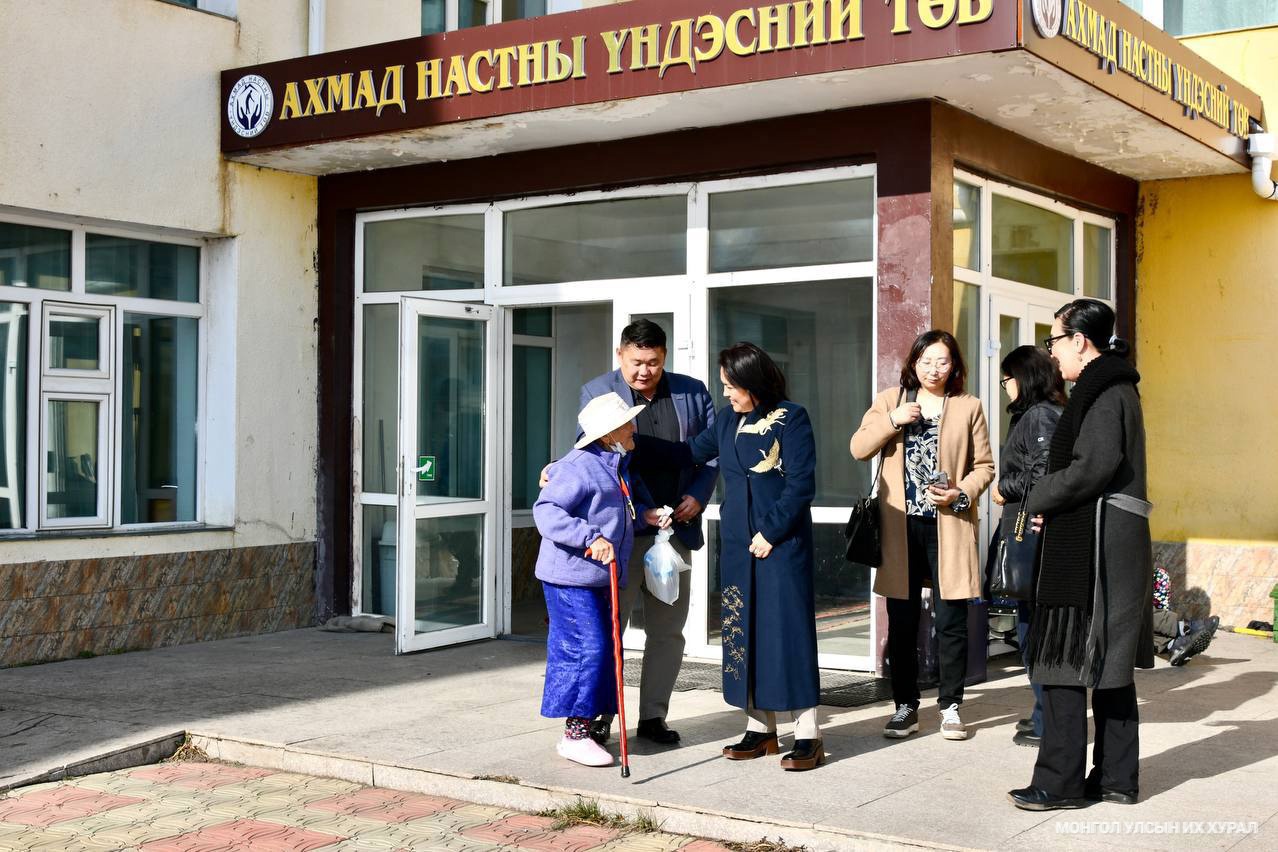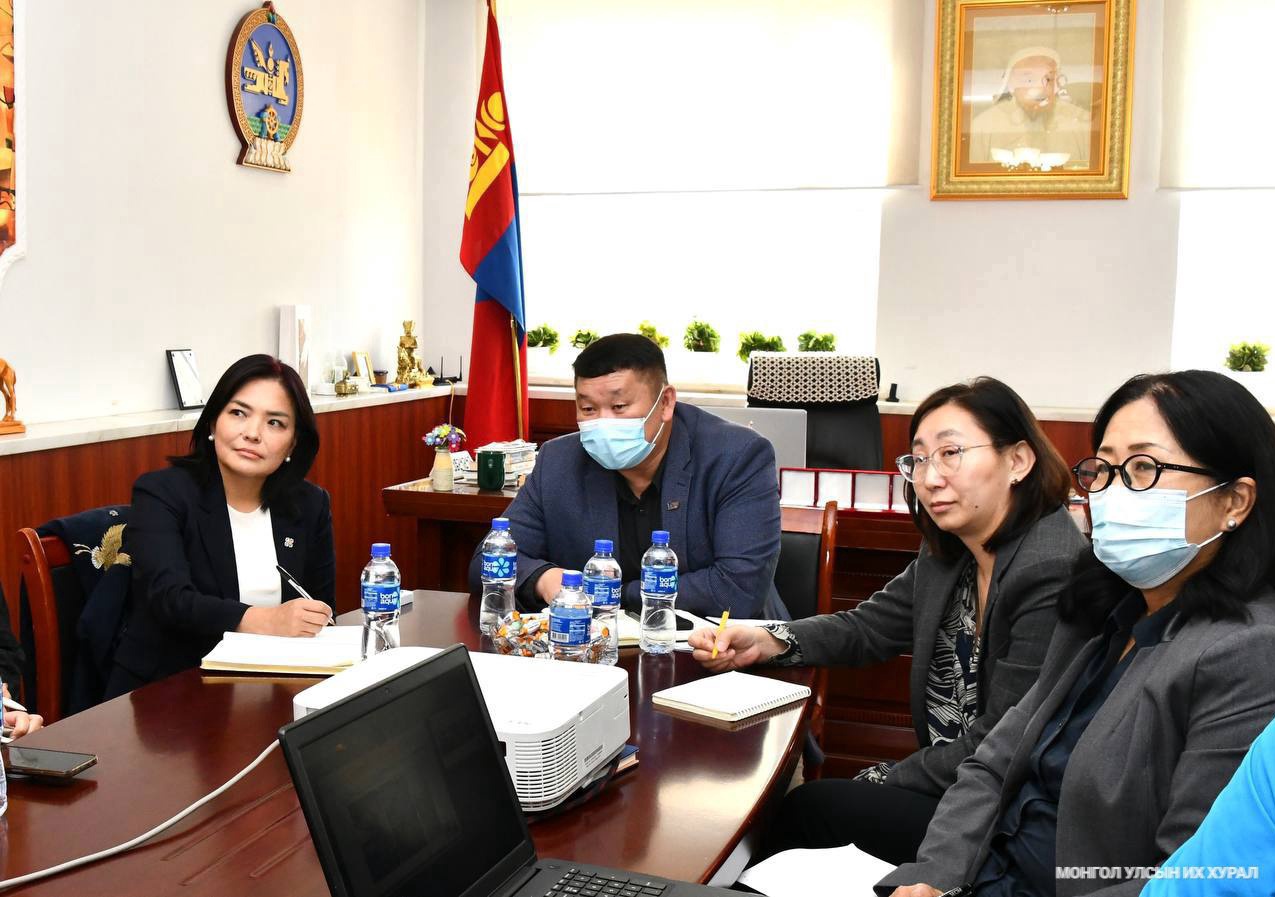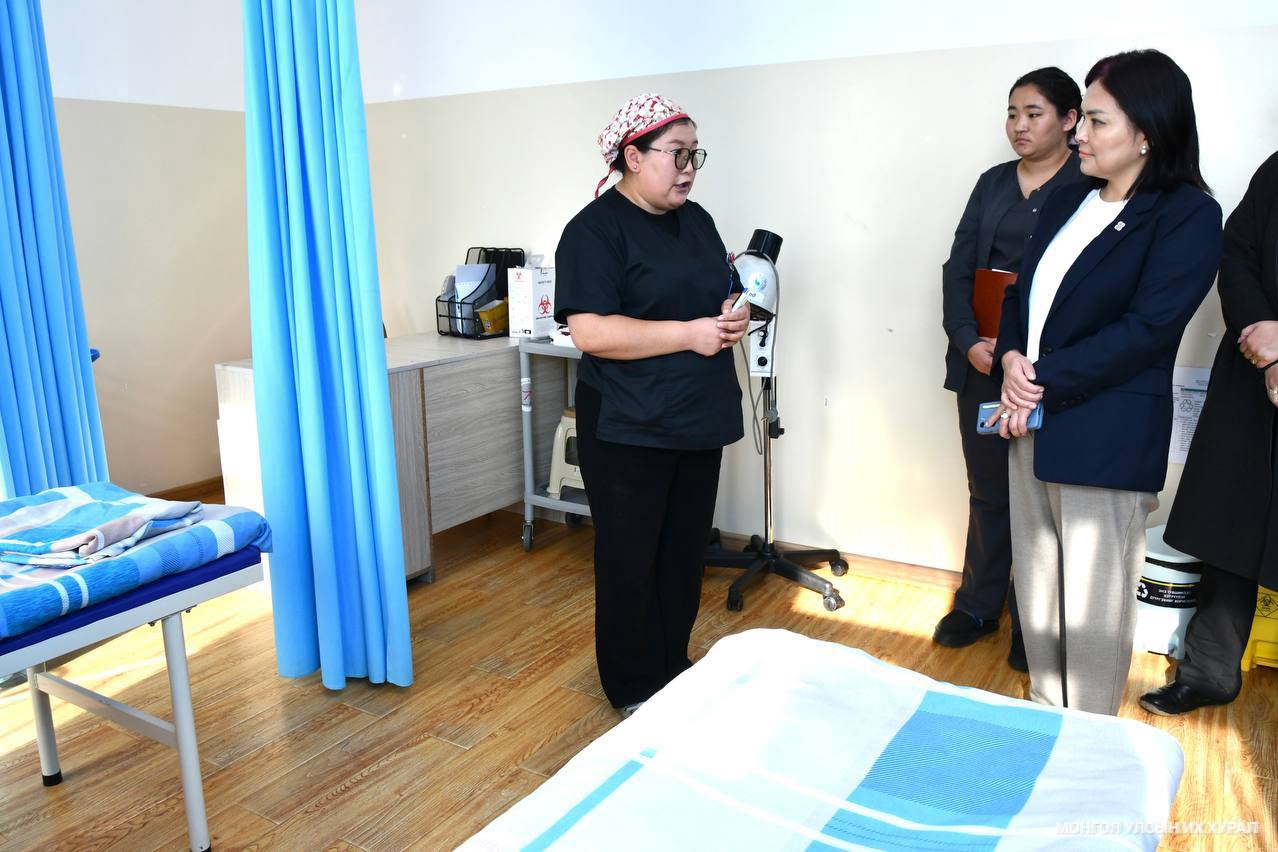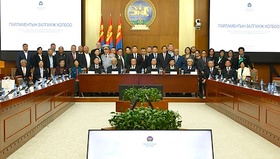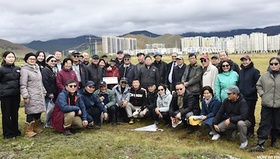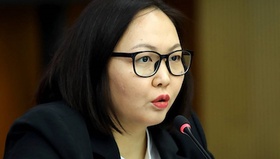MP D. Enhtuya, a member of the working group tasked with creating a legal framework for care services, visited the National Center for the Elderly in Battsumber, Tuv Province, today (October 24, 2024). During her visit, she expressed the need to align care and nursing services with international standards to ensure that the elderly, who have dedicated their lives to the development of the country, can live with dignity, fulfillment, and satisfaction.
Established in 1924 on the initiative of Marshal K. Choybalsan, the National Center for the Elderly, which is the oldest welfare organization in Mongolia, is celebrating its 100th anniversary this year. The center currently has a capacity for 250 residents, with 175 elderly individuals living there, more than 90 of whom require medical treatment, including half who are bedridden. According to L. Erdenekhuu, the center’s director, each year, about 15-20 caregivers pass away, and a similar number of new residents are admitted.
In accordance with the law, the center accommodates elderly individuals who are single, require constant care, or have disabilities, providing them with food, clothing, health care, rehabilitation, psychological support, and cultural services. Although the center is staffed for 127 positions, it currently employs 110 individuals. MP D. Enhtuya congratulated Director L. Erdenekhuu for actively working to improve the living conditions and strengthen human resources in caregiving, while also discussing ways to further enhance care and welfare services.
Traditionally, 70% of the pensions of residents at the center were directed to the state fund, while 30% was allocated to the individuals themselves. Since 2012, this arrangement has been reversed, with 30% now going to the state and 70% to the residents. The 30% that is concentrated in the state fund is primarily used to cover high medical costs, surgical fees, transportation for return visits, and support for related businesses. The remaining 70% of the pension is now provided to residents via a card system. For those unable to independently manage their pensions, a commission consisting of the center’s accountant and social worker uses their preferences to manage expenditures, attaching receipts for every purchase.
Residents at the center have been living there for periods ranging from one month to 20 years. MP D. Enhtuya visited several rooms and spoke with the elderly residents about their living conditions. She also inquired about working conditions, social security, and other relevant issues with the center’s staff, caregivers, and specialists. Here are her insights:
– Can you briefly inform us about the activities of the working group focused on creating a legal framework for care services?
The working group was established under Order No. 100 of the Chairman of the State Great Hural to assess the current state of care services, examine the implementation of related legislation, and evaluate the need for regulations. As part of this work, we have visited various public and private care facilities, including those for orphaned children and individuals with disabilities. Today, we worked at the National Center for the Elderly in Battsumber. There is a pressing need for significant legal and systemic reforms in Mongolia’s care and nursing sectors. For instance, caregivers in hospitals are often the lowest-paid and least respected positions, whereas, in developed countries, the labor of caregivers and nurses is highly valued. Therefore, we believe it is essential not just to amend existing laws but to enact comprehensive legislation that initiates fundamental changes in care and nursing services, which have seen little improvement over the past 30 years. To achieve this, we are conducting thorough research and evaluations. We have also commissioned the Research Institute under the Secretariat of the State Great Hural to study how care services are organized, financed, and regulated in developed countries, while also gathering input from relevant ministries and agencies.
– What did you observe about the operations of the National Center for the Elderly?
I had previously visited the Battsumber National Center for the Elderly. Upon returning, I noticed that the environment, services, and overall operations have improved relatively. However, the principle of supporting orphans and the impoverished, established 100 years ago during Marshal K. Choybalsan’s time, remains unchanged. The center still operates on the premise of providing shelter to the homeless and those without caregivers. This mindset needs to shift towards creating care facilities that adequately and comfortably serve the elderly, through partnerships between the government and the private sector. The elderly, who have devoted their lives to the country, deserve a supportive social security system that meets their needs. The current situation of elderly care in Mongolia is regrettable, especially as I have conducted substantial research on this issue. During my student years in Germany, I worked in this field and can confidently say that the current conditions for Mongolia’s elderly are quite challenging. We essentially keep our elderly confined at home. Behind closed doors, many elderly individuals suffer from neglect, maltreatment, financial exploitation, and social isolation. Official studies indicate that over 60% of our elderly population experiences psychological or physical abuse, a shocking statistic. Therefore, it is imperative to initiate legal and operational changes without delay, aiming for tangible results.
– Is there societal readiness for the reform in the mentality towards caring for the elderly?
Mongolians have a high level of cultural education and traditional values regarding the care and respect for their parents, and I have no doubt about this. However, recent family studies show that modern families tend to have fewer children, which gradually leads to a growing trend of being unable to care for aging parents due to societal and individual circumstances. While this is not a matter that has reached crisis levels, the demand for elder care will continue to persist. Moreover, elder care should not solely be regarded as a matter of the children’s responsibility. Human beings inherently require interaction and community engagement; there is a significant need for social connection and active living. Many elderly individuals seek to participate in care facilities or community centers based on their own interests. Such considerations must be factored into the creation of a legal framework for care services, and we are dedicated to conducting effective research and evaluations in this area.

 Eng
Eng  Монгол
Монгол